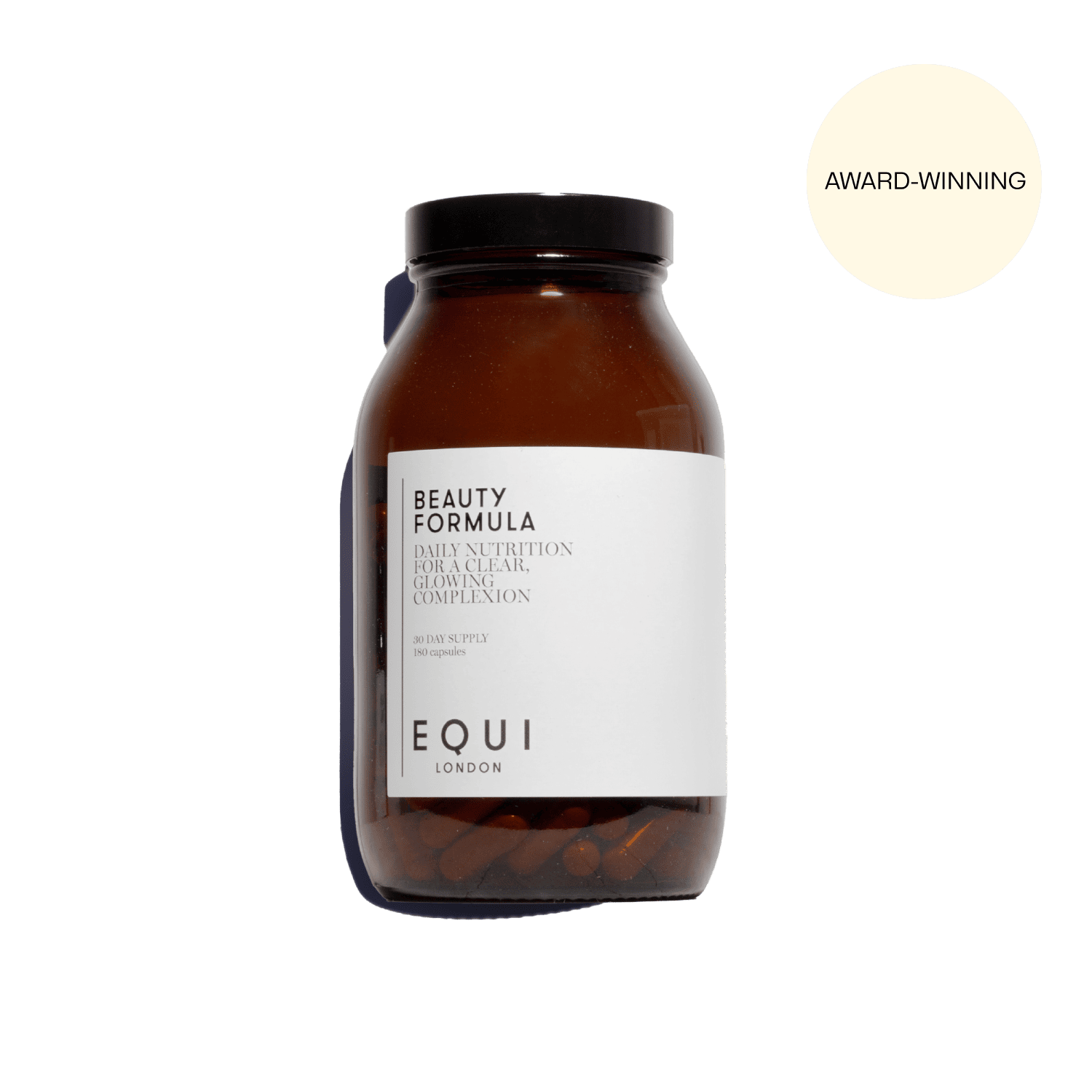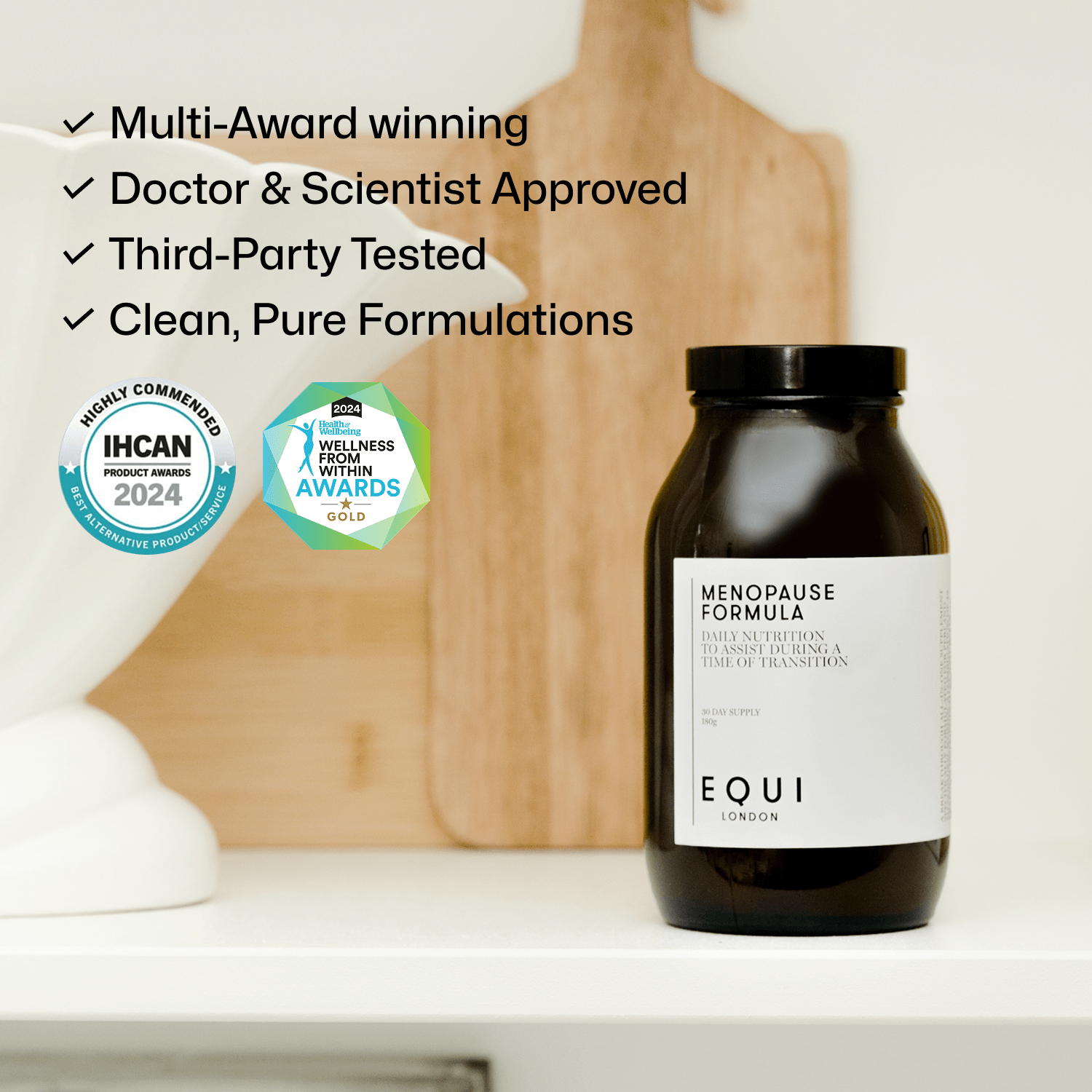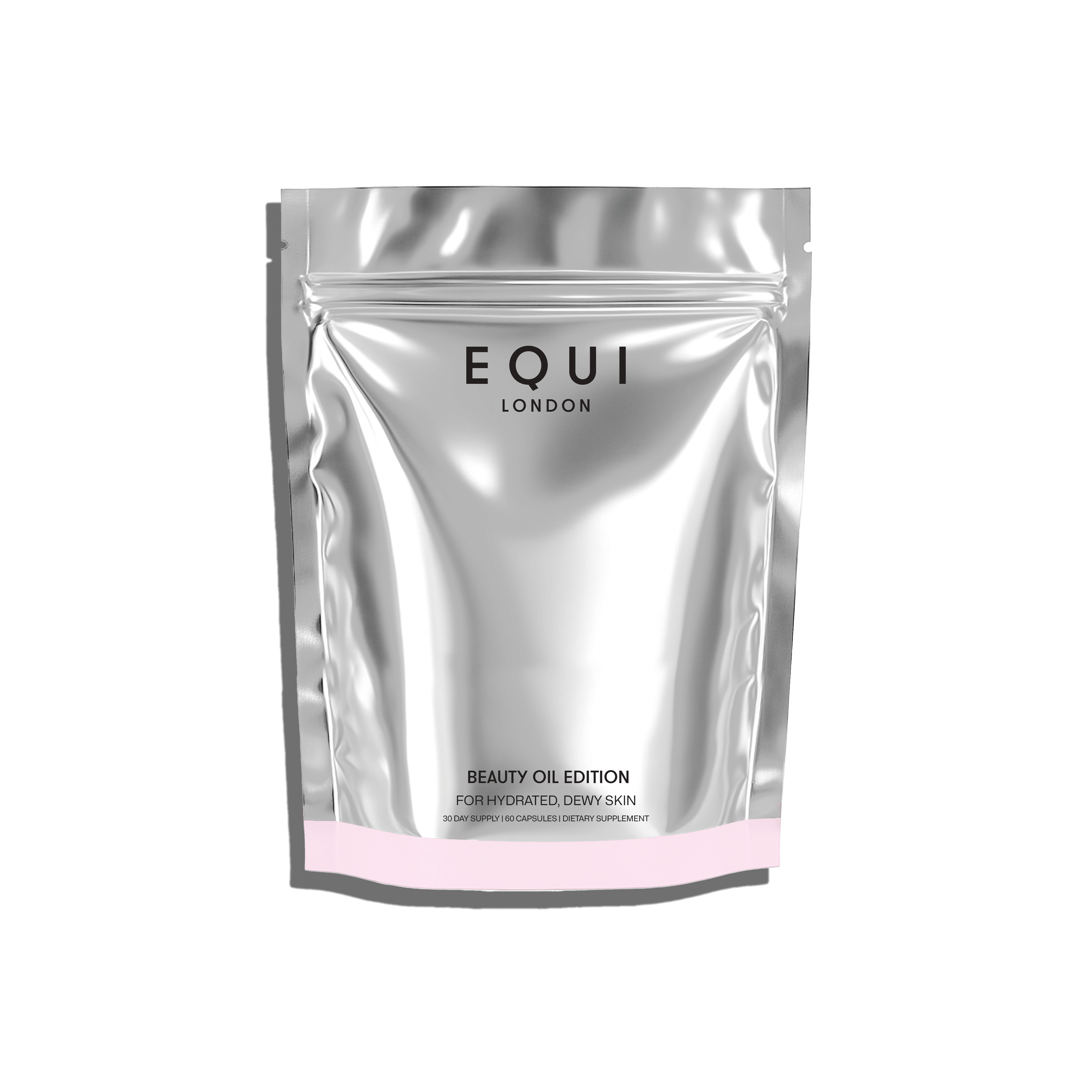
5 Easy Self-Care Habits You May Not Have Thought About
We all know how the end-of-year celebrations, while fun, can often lead us to neglect our own well-being. This time of year, characterised by colder weather, festive meals, and social or family gatherings, provides a unique opportunity to reflect on our self-care practices and implement new habits that nurture our body and soul. Firstly, the holiday season is a perfect time to rekindle our connection with nature. Despite the chill, there's a certain magic in the air that can only be felt when we step outside. Mindful eating is another cornerstone of self-care during this season. This often-overlooked practice helps support optimal gut health so that we may digest and absorb nutrients optimally. You may be surprised to hear that creativity also plays a crucial role in self-care. Engaging in creative activities is not just a fun pastime; it's a therapeutic outlet that can reduce stress, improve mood, and boost self-esteem. Exercise, too, whilst it may not be top of the agenda is vital during the festive season. While it's tempting to stay snuggled up indoors, incorporating regular physical activity into our routine is crucial for both physical and mental health. Finally, meditation and mindfulness practices are essential tools for navigating the holiday season. These practices help ground us, reduce stress, and enhance overall emotional well-being.
As we dive into this blog, we'll explore these themes in more detail, providing practical tips and insights to help you incorporate these self-care habits into your daily routine. So, as we celebrate the most wonderful time of the year, let's also make it a time to truly think about and care for ourselves.
1. Connect with Nature
In our modern lifestyle, dominated by screens and urban living, we often find ourselves detached from nature. Yet, stepping outside into natural environments can be incredibly therapeutic and beneficial for our overall health and well-being. The significance of connecting with nature has been underscored in various scientific studies, highlighting its positive impact on mental, physical, and emotional health. Spending time in nature, be it a leisurely walk in the park, a hike in the woods, or simply sitting in a garden or green space, has been shown to have a profound effect on reducing stress and improving mood. The tranquillity and beauty of natural surroundings offer a respite from the chaos of daily life. Studies demonstrate how a 90-minute walk in a natural environment can lead to decreased activity in the subgenual prefrontal cortex, a brain area associated with a key factor in depression (1). Furthermore, natural environments play a crucial role in enhancing cognitive function. Outdoor activities in green spaces stimulate the mind and improve attention and memory. One study found that participants who walked in a park performed better on a memory test than those who walked in urban settings (2). So, there is something in nature and it’s calming effect on the brain and nervous system. Connecting with nature also supports our bodily functions, including the gut microbiome, which is vital for our overall health. The diverse microorganisms present in natural environment around us from the soil to plants/trees and even our pets can positively influence our gut microbiota, enhancing our immune system and reducing inflammation. Research has highlighted that exposure to these natural microorganisms is essential for developing a robust immune system (3).
An outdoor activity to consider is ‘grounding’, or ‘earthing’, which involves direct contact with the Earth's surface electrons by walking barefoot outside. This is believed to have numerous health benefits, including reducing inflammation, improving sleep, and increasing energy. The science behind grounding lies in the transfer of electrons from the Earth to the body, which can neutralise free radicals.
Incorporating nature into our daily lives can be as simple as taking a few minutes to step outside, practicing mindfulness in a garden, or planning regular outings to parks or nature reserves. These actions can significantly impact our well-being, helping us to reconnect with our environment and ourselves. To fully benefit from nature's therapeutic effects, it's crucial to consciously integrate these practices into our routine. Whether it's a daily walk, gardening, visiting the local park or occasional hiking trips, each interaction with nature is a step towards better health and well-being.
2. Mindful Eating
The festive season, with its abundance of rich foods and social gatherings, can often lead us down the path of overindulgence. However, by incorporating mindful eating practices into our mealtime rituals, we can enjoy the season’s offerings without compromising our digestion, gut health, or nutrient absorption. Mindful eating is the practice of being fully present and engaged during eating, focusing on the experience of eating, and listening to the body's hunger and satiety cues. This approach not only prevents overeating but also enhances digestion and the absorption of nutrients.
Our Step-by-Step Guide to Mindful Eating:
Chewing Thoroughly - Digestion begins in the mouth, where amylase in saliva starts breaking down carbohydrates. Chewing food thoroughly – around 20-30 times per bite – aids this process and makes it easier for the stomach to further break down the food. We can also stimulate amylase by cooking our own food – digestion starts with sight, smell and that initial taste.
Digestive Enzymes and Bile Function - As food moves into the stomach and then the small intestine, different digestive enzymes and bile produced by the liver work to break down fats, proteins, and carbohydrates. Taking time to consume your meal with mindful eating helps regulate the pace at which food enters the digestive tract, ensuring optimal enzyme function and nutrient absorption. Avoid drinking large quantities of water, during meal times as this will only serve to dilute digestive enzymes, reducing their function.
The Migrating Motor Complex (MMC) – Mindful eating is as much about when we eat as how we eat. For example, the MMC plays a crucial role in gut health by clearing undigested food and bacteria from the intestine and regular eating shuts down this process. Studies have shown that the MMC operates in roughly 90-minute cycles between meals (4). Allowing a gap of 3 hours between meals, without snacking, enables the MMC to function effectively, reducing the risk of bloating, constipation, and bacterial overgrowth such as SIBO (small intestinal bacterial overgrowth).
Social Aspect of Eating - The Mediterranean diet, renowned for its health benefits, is rooted in social eating. During the festive season, meals are often shared with family and friends. This social aspect can be harmonised with mindful eating by engaging in conversation, slowing the pace of the meal, and creating a relaxed, enjoyable dining experience. Its benefits will extend from supporting optimal gut health and function to digestion and nutrient absorption.
To eat mindfully during the festive season:
- Sit down for meals, free from distractions like laptops, mobile phones or tv.
- Engage in the social aspect of meals, which can naturally slow down the pace of eating.
- Take small bites and chew slowly, savouring the flavours and textures.
- Listen to your body’s hunger cues and stop eating when you feel comfortably full.
- Wait a few minutes before going for seconds to assess true hunger.
Incorporating these practices helps in fully enjoying the culinary delights of the festive season while maintaining digestive health and nutrient extraction. Mindful eating is not about restriction but about awareness and enjoyment. It's a practice that can transform our mealtimes, making them an opportunity for nourishment, pleasure, and connection.
EQUI Formulas contain natural digestive enzymes thanks to the inclusion of papain and bromelain, which are extracted from papaya and pineapples. These enzymes facilitate the breakdown of proteins into smaller, more easily absorbable peptides and amino acids, aiding in efficient digestion and nutrient absorption. Together, these enzymes can ease symptoms like bloating, gas, and indigestion, thereby supporting overall digestive well-being. Their inclusion in EQUI Formulas makes them a valuable asset for maintaining digestive health, especially during times like the festive season when dietary habits may vary. All you need to do is find your Formula – take our quiz here.
3. Creative Pursuits
Did you know that engaging in creative activities can be a powerful tool for stress relief and self-expression? In a world where productivity and efficiency often take precedence, setting aside time for creativity can provide a much-needed escape and a way to channel emotions in a positive and fulfilling way. Creativity comes in many forms - painting, writing, playing music, crafting, baking, or even gardening. These activities engage the mind in a different way, breaking the cycle of stress and anxiety that often accompanies our daily lives. Research highlights that engaging in creative activities can lead to decreases in negative emotions and increases in positive ones, boosting overall mental well-being (5). For instance, painting or drawing allows for the expression of emotions that might be hard to verbalise. This form of visual storytelling can be therapeutic, offering a tangible way to process feelings. A study found that just 45 minutes of creative activity significantly lessened stress in the body, regardless of artistic experience or talent (6). Writing, be it journaling, poetry, or storytelling, provides a similar outlet. It allows for reflection and can be a powerful way to process and make sense of one’s experiences and emotions. In fact, writing about emotional experiences can improve physical and psychological health outcomes. Music, whether creating it or simply listening, can also have a profound effect on the mind and body. It can evoke emotions, stimulate memories, and even alter mood. Research demonstrates that listening to music can reduce stress by lowering the body's cortisol levels (7). So, simply listening to your favourite playlist on your daily commute instead of mindless scrolling will offer far greater benefits than you may think.
Plus, during the festive season, there are numerous creative activities to indulge in that can enhance the celebratory spirit while also offering mental health benefits, for example:
Wreath Making - Crafting a festive wreath is not just a creative endeavour but also a way to connect with nature. The act of arranging natural elements can be incredibly grounding and soothing.
Crafting Festive Decorations - Homemade decorations, whether paper snowflakes, ornaments, or garlands, provide a personal touch to the festive décor and are a great way to engage the whole family in a creative activity.
Decorating You Home & Christmas Tree - This traditional activity allows for artistic expression and can be a fun, engaging task for all ages. The act of planning and decorating creates a sense of accomplishment and pride, for the whole family.
Baking - The process of baking, especially festive treats, is not only a creative pursuit but also a sensory experience that can be immensely satisfying. Your creations could be used for gifting too, which will add to the positive feelings and emotions around this activity.
Letter Writing - Writing personalised letters or cards during the holidays can be a heartfelt way to connect with loved ones, especially those we may not be able to see in person. Social connection is key to our health and wellbeing so use this time to reconnect with those that matter the most to you.
Incorporating these creative activities into your holiday routine can make the festive season more meaningful and less stressful. They offer a way to unwind, express oneself, and create lasting memories. Creativity is not just an artistic pursuit; it's a form of self-care. It offers an escape, a way to process emotions, and a path to improved mental health. This festive season, take the opportunity to explore different creative avenues and discover the joy and fulfilment they can bring.
4. Regular Physical Activity
Exercise is often associated with physical health, but its benefits extend far beyond just physical well-being. Engaging in regular physical activity is a crucial element for maintaining mental health, particularly during busy periods like the festive season. Physical activities, such as yoga, Pilates, and even simple daily walks, play a significant role in managing stress, boosting mood, and enhancing sleep quality. Studies have found that exercise can be as effective as antidepressants in reducing symptoms of depression (8). The endorphins released during physical activity act as natural mood lifters, reducing the perception of pain, and triggering a positive feeling in the body. Yoga and Pilates, in particular, combine physical movement with breath control and meditation, offering a holistic approach to stress management. A research study highlighted the effectiveness of yoga in reducing stress and anxiety, attributing this to the practice's focus on mindfulness and bodily awareness (9). Furthermore, regular exercise can significantly improve sleep quality, which is crucial for mental well-being. Research suggests that exercise improves both the quality and duration of sleep, particularly in people with sleep disorders (10). This is particularly relevant during the festive season when regular routines are disrupted, potentially impacting our natural sleep-wake cycle and circadian rhythm.
Maintaining an exercise routine over the festive period is essential, not only for managing the stress of busy schedules but also for regulating the circadian rhythm, which governs our sleep patterns, hormone release, eating habits, and digestion. Disruptions in the circadian rhythm can lead to sleep disturbances, mood changes, and even metabolic issues. Research emphasises the importance of regular physical activity in synchronising the circadian rhythm, thereby improving overall health and well-being (11).
During the festive season, it's easy to deprioritise exercise in favour of other activities. However, integrating physical activity into daily routines can be a practical way to manage the increased stress and potential disruptions to sleep patterns. This doesn't necessarily mean adhering to a rigorous exercise regime. Even moderate activities like brisk walking, stretching, or dance can provide substantial mental health benefits. Incorporating exercise into the holiday routine can be as simple as a morning walk to kickstart the day, a yoga session to unwind in the evening, or a Pilates class to maintain physical and mental balance. The key is to find activities that are enjoyable and can be easily integrated into the festive schedule. Its benefits in stress reduction, mood enhancement, and sleep improvement are well-documented and crucial for navigating this period healthily and happily. Continuing an exercise routine during the holidays can help in managing the additional stressors, maintaining circadian rhythm, and ensuring a balanced and joyful festive experience.
5. Meditation
We couldn’t discuss self-care without mentioning meditation. This is a practice rooted in ancient traditions, which has gained immense popularity in modern times as a powerful tool for enhancing mental health. At its core, meditation involves focusing the mind and achieving a mentally clear and emotionally calm state. This practice has shown significant benefits in reducing stress, anxiety, and depression, while improving concentration and overall emotional well-being (12). One of the most recognised benefits of meditation is its ability to reduce stress. When we meditate, the body enters a state of deep rest, which counteracts the stress response. A study found that mindfulness meditation had moderate evidence of improved anxiety, depression, and pain (13). Meditation reduces the production of stress hormones, such as cortisol, and promotes relaxation, leading to a reduction in stress-related symptoms.
Meditation has also been shown to be effective in managing symptoms of depression. By fostering a greater awareness of the present moment and reducing negative thought patterns, meditation can help break the cycle of depression (14). Meditation can also enhance cognitive function and concentration. This is particularly evident in practices that involve focusing attention, such as mindful meditation. Finally, meditation also contributes to overall emotional well-being. It encourages a deeper understanding of our emotions, leading to improved emotional regulation. A study showed that participants who underwent mindfulness training showed decreased activity in brain regions associated with emotional reactivity, suggesting better emotional regulation (15).
Incorporating meditation into daily life can be simple and does not require extensive training. Here are a few practices to get started:
Mindful Breathing - This involves focusing on the breath and observing it without trying to change it. It’s a simple way to anchor the mind in the present moment. A simple technique is breathing in for 4 seconds and out for 6 seconds. This can be used during stressful moments or even when you need to take a few minutes for yourself during the festive period.
Body Scan Meditation -This practice involves mentally scanning your body for areas of tension and consciously relaxing them. It’s effective in reducing physical stress and promoting awareness of the body. You can do this by starting from your toes and working your way up to your head, body part to body part.
Guided Meditation - There are numerous apps and online resources that offer guided meditations. These can be particularly helpful for beginners. For example, calm or headspace and even YouTube have lots of great resources. It’s all about finding the right one for you!
Mindful Walking - This combines meditation with physical activity and even getting outside. It involves walking slowly and mindfully, paying attention to the sensation of movement. Hit all three of our self-care suggestions in one!
Loving-kindness Meditation - This practice involves focusing on developing feelings of goodwill and kindness towards yourself and others. For example, gratitude journaling can be a good way to practice this type of meditation.
Regular practice, even for a few minutes a day, can offer substantial benefits. It's important to choose a practice that resonates with you and fits into your daily routine. Meditation offers a range of mental health benefits, from stress reduction to improved emotional well-being. By incorporating meditation into our daily lives, we can cultivate a sense of peace, stability, and clarity that supports our overall mental health.
During the festive season, with its whirlwind of social gatherings and culinary indulgences, maintaining consistent nutrition can be challenging. Routines often take a back seat, leading to potential nutritional gaps. This is where EQUI Formulas can play a crucial role. Our comprehensively formulated supplements are designed to provide an advanced blend of vitamins, minerals, and other essential nutrients, ensuring that your body receives the support it needs during this busy time. Taking EQUI Formulas consistently can help bridge the gap between your daily nutritional requirements and the reality of festive eating habits. Whether it’s ensuring adequate intake of vitamins and minerals that support immune function, providing antioxidants to combat oxidative stress from excess, or offering specific nutrients that maintain energy levels, our Formulas offer a convenient and effective way to maintain balance. Shop our Formulas here.
References
-
Bratman, G.N., Hamilton, J.P., Hahn, K.S., Daily, G.C., and Gross, J.J., (2015). Nature experience reduces rumination and subgenual prefrontal cortex activation. Proceedings of the National Academy of Sciences, 112(28), pp.8567-8572.
-
Berman, M.G., Jonides, J., and Kaplan, S., (2008). The cognitive benefits of interacting with nature. Psychological Science, 19(12), pp.1207-1212.
-
Rook, G.A., (2013). Regulation of the immune system by biodiversity from the natural environment: An ecosystem service essential to health. Proceedings of the National Academy of Sciences, 110(46), pp.18360-18367.
-
Deloose, E., Janssen, P., Depoortere, I., and Tack, J., (2012). The migrating motor complex: control mechanisms and its role in health and disease. Nature Reviews Gastroenterology & Hepatology, 9(5), pp.271-285.
-
Stuckey, H.L., and Nobel, J., (2010). The connection between art, healing, and public health: a review of current literature. American Journal of Public Health, 100(2), pp.254-263.
-
Kaimal, G., Ray, K., and Muniz, J., (2016). Reduction of cortisol levels and participants' responses following art making. Art Therapy, 33(2), pp.74-80.
-
Chanda, M.L., and Levitin, D.J., (2013). The neurochemistry of music. Trends in Cognitive Sciences, 17(4), pp.179-193.
-
Stathopoulou, G., Powers, M.B., Berry, A.C., Smits, J.A.J., and Otto, M.W., (2006). Exercise interventions for mental health: A quantitative and qualitative review. Clinical Psychology: Science and Practice, 13(2), pp.179-193.
-
Ross, A., and Thomas, S., (2010). The health benefits of yoga and exercise: a review of comparison studies. The Journal of Alternative and Complementary Medicine, 16(1), pp.3-12.
-
Kredlow, M.A., Capozzoli, M.C., Hearon, B.A., Calkins, A.W., and Otto, M.W., (2015). The effects of physical activity on sleep: a meta-analytic review. Journal of Behavioral Medicine, 38(3), pp.427-449.
-
Youngstedt SD, Kline CE, Elliott JA, Zielinski MR, Devlin TM, Moore TA. (2016). Circadian Phase-Shifting Effects of Bright Light, Exercise, and Bright Light + Exercise. J Circadian Rhythms. 14:2.
-
Goyal, M., Singh, S., Sibinga, E.M., Gould, N.F., Rowland-Seymour, A., Sharma, R., Berger, Z., Sleicher, D., Maron, D.D., Shihab, H.M., Ranasinghe, P.D., Linn, S., Saha, S., Bass, E.B., and Haythornthwaite, J.A., (2014). Meditation programs for psychological stress and well-being: a systematic review and meta-analysis. JAMA Internal Medicine, 174(3), pp.357-368.
-
Goldin, P.R., and Gross, J.J., (2010). Effects of mindfulness-based stress reduction (MBSR) on emotion regulation in social anxiety disorder. Emotion, 10(1), pp.83-91.
-
Zeidan, F., Johnson, S.K., Diamond, B.J., David, Z., and Goolkasian, P., (2010). Mindfulness meditation improves cognition: Evidence of brief mental training. Consciousness and Cognition, 19(2), pp.597-605.
-
Desbordes, G., Negi, L.T., Pace, T.W., Wallace, B.A., Raison, C.L., and Schwartz, E.L., (2012). Effects of mindful-attention and compassion meditation training on amygdala response to emotional stimuli in an ordinary, non-meditative state. Frontiers in Human Neuroscience, 6, p.292.












